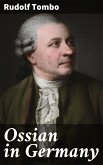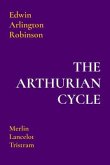In "Ossian in Germany," Rudolf Tombo meticulously examines the profound impact of James Macpherson's Ossianic poems on German literary culture during the 18th century. Through a rich blend of literary analysis and historical context, Tombo explores how Ossian's themes of heroism, melancholy, and nature resonated with the Sturm und Drang movement, influencing prominent figures such as Goethe and Schiller. The book employs a scholarly tone, supplemented by critical insights into the intricate interplay between Scottish Romanticism and German literature, revealing how this cross-cultural dialogue enriched the literary landscape of the time. Rudolf Tombo, a noted philologist and literature scholar, dedicated his research to the intercultural exchanges in European literature. His expertise in German Romanticism and comparative literature provides a solid foundation for this exploration. Tombo's keen understanding of the historical and cultural milieu that birthed the Ossian phenomenon sheds light on its transnational appeal and significance, elucidating how these texts were reinterpreted in a distinctly German context. This work is highly recommended for scholars of Romantic literature and those interested in the transference of artistic ideas across cultural boundaries. Tombo's thorough examination not only enhances our understanding of Ossian's influence but also invites readers to appreciate the complexities of literary reception and adaptation.
Dieser Download kann aus rechtlichen Gründen nur mit Rechnungsadresse in A, B, BG, CY, CZ, D, DK, EW, E, FIN, F, GR, H, IRL, I, LT, L, LR, M, NL, PL, P, R, S, SLO, SK ausgeliefert werden.









